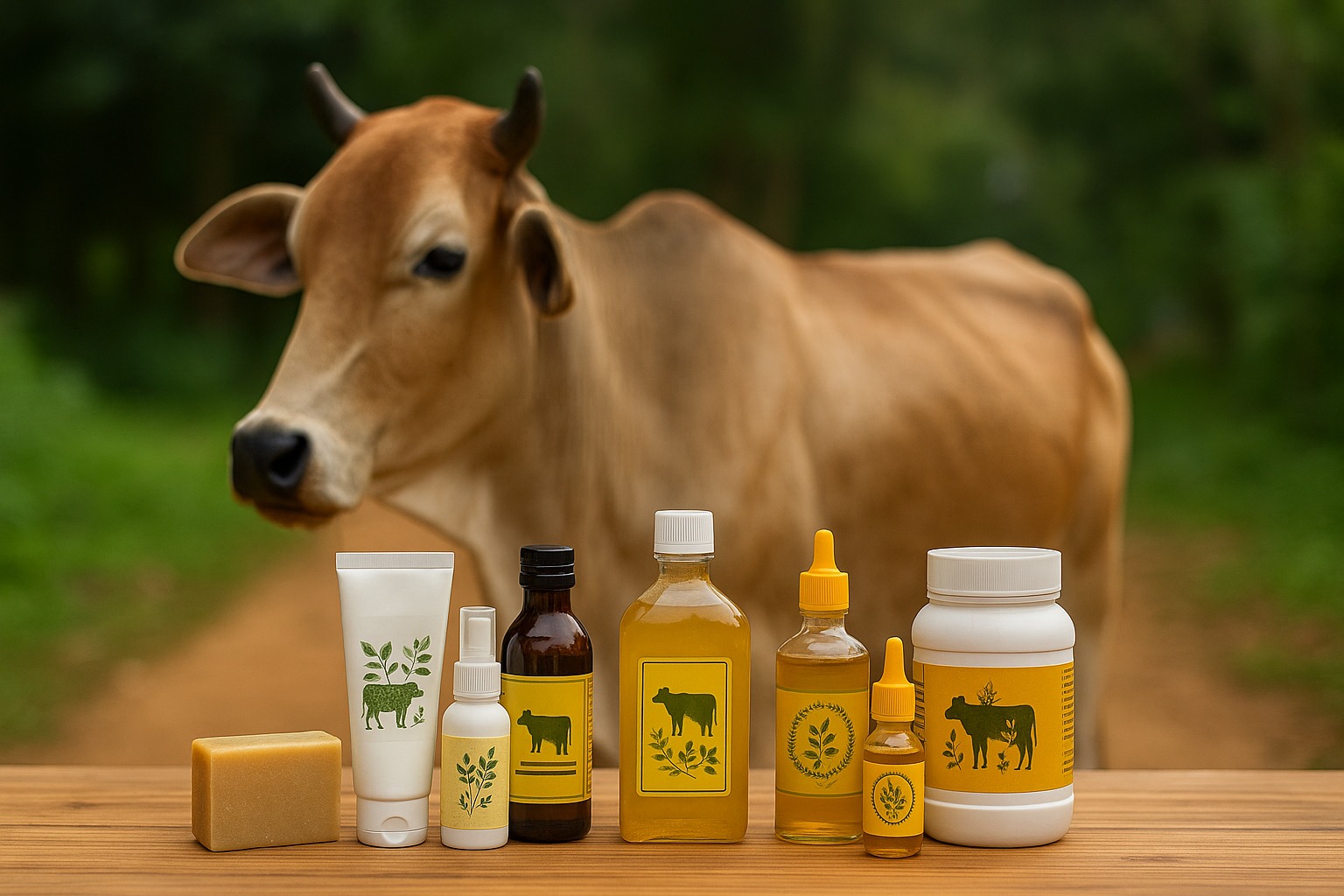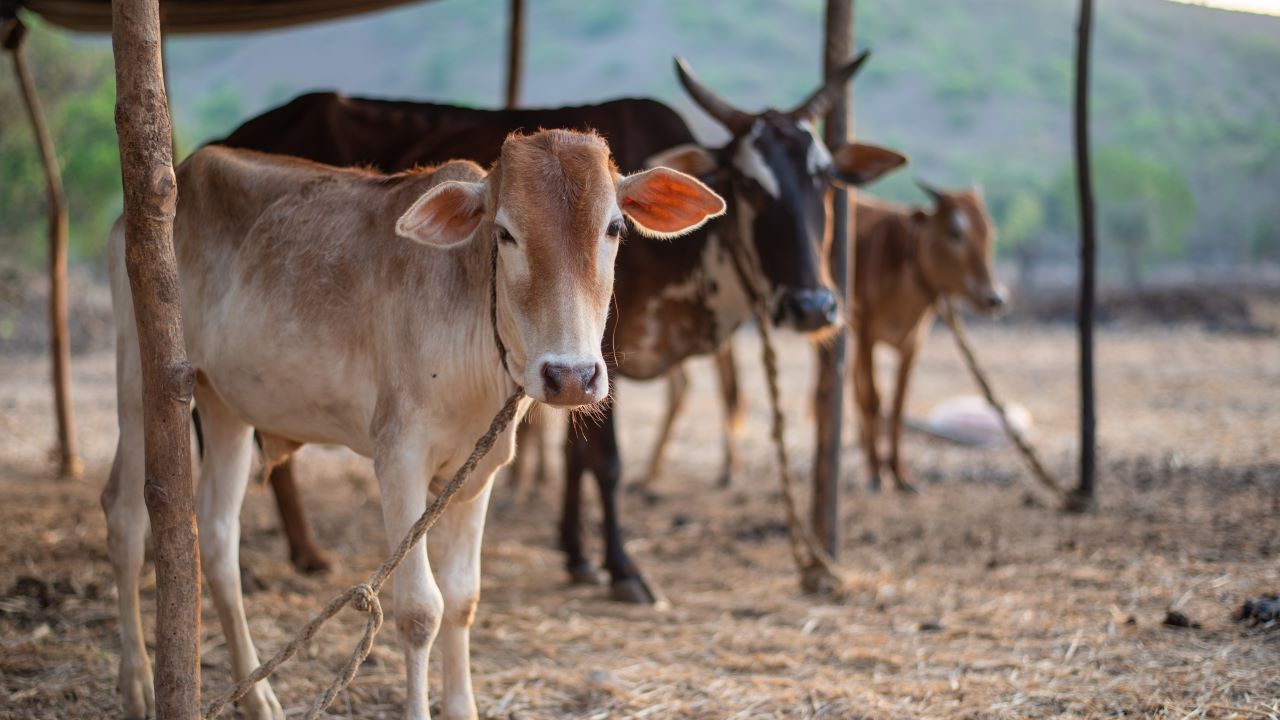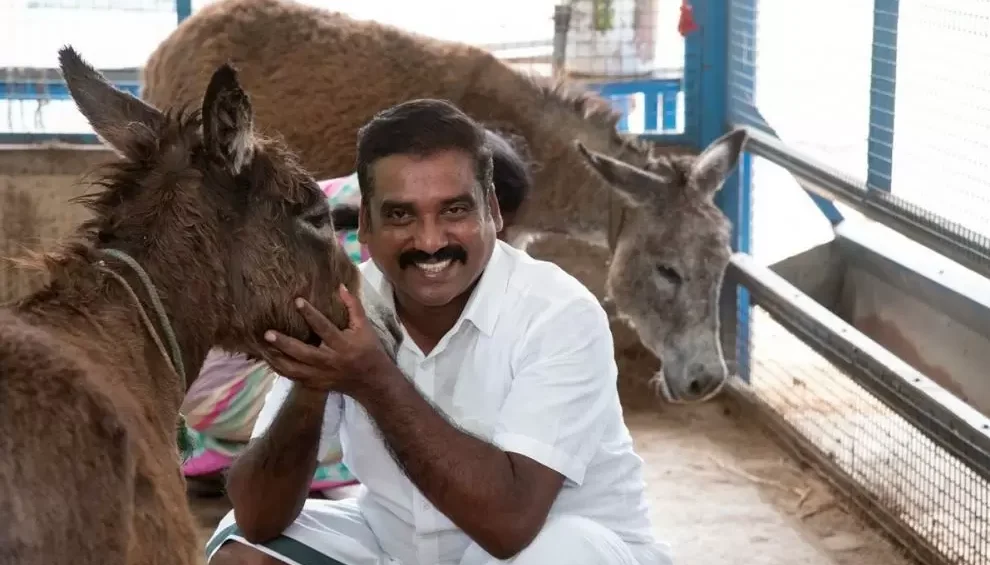India has quietly built a thriving industry out of an ingredient the rest of the world would call waste, cow urine. What was once a purely sacred ritual in Hindu households is now powering a ₹1,000 crore cow urine economy, with products ranging from toothpastes and soaps to hospital cleaners and immunity shots. And the market is no longer confined to Indian shores, exports are reaching countries like the US, UK, and Fiji.
This astonishing transformation was documented in a widely-circulated post by Aarti Sheth Cooper, whose research highlighted how deeply entrenched this economy has become, blending belief, commerce, and modern distribution.
Beyond Belief: The Cow Urine Economy
Several companies have turned cow urine, or gaumutra, into a competitive advantage, leaning on traditional trust while adopting modern packaging and e-commerce.
One such brand is Cowpathy, which manufactures soaps, toothpastes, and floor cleaners infused with cow urine. According to company disclosures, it exports products to 13 countries and sells approximately 45,000 soaps each month. These aren’t just ritual products, they are marketed as natural, ayurvedic alternatives to chemical-laden personal care items.

Similarly, Cowwal has brought gaumutra to mainstream online retail by listing “Gaumutra immunity drops” on platforms like Amazon, promising benefits for digestion, detoxification, and immunity.
And it’s not just startups. A women-led gaushala (cow shelter) has carved a niche by distilling and exporting cow urine overseas, demonstrating that even traditional organizations are professionalizing their operations to meet global demand.
Government Push: Subsidies & Yojanas
The industry has also benefited from significant government support at both state and national levels.
In Chhattisgarh, the state launched the Godhan Nyay Yojana, under which farmers are paid ₹4 per litre of cow urine collected. According to official figures, the scheme has already disbursed around ₹5.6 crore to farmers, supporting both rural incomes and the raw material supply chain.
Startups entering the space can also tap into funding: the Kamdhenu Aayog offers subsidies covering up to 60% of capital expenditure for businesses creating products from gaumutra or cow dung.
Even public health facilities are experimenting with cow urine-based products. In Rajasthan, hospitals have conducted trials of phenyl and floor cleaners made from cow urine, offering an eco-friendly alternative to conventional cleaners.
The Pandemic Boost
During the COVID-19 pandemic, demand for immunity-boosting products spiked dramatically. Cow urine-based “immunity shots”, marketed as natural, ayurvedic, and energizing, were reportedly sold widely, resembling the popularity of energy drinks but targeted at health-conscious and faith-driven consumers.
Why It Works: Pavitra-Market Fit
What makes this industry resilient isn’t just the products or the price points, it’s the cultural and emotional connection. For millions of Indians, cow urine has long been seen as sacred and medicinal. Brands have tapped into this deeply ingrained trust, a kind of “pavitra-market fit,” which goes beyond conventional product-market fit.
Unlike most consumer goods that rely on aggressive advertising or discounts to create demand, these products already sit comfortably in homes and habits because of cultural continuity. As Aarti Sheth Cooper aptly pointed out, “When your dadi (grandmother) used to worship the ingredient, it didn’t need a pitch deck to sell.”
A Global Curiosity
The fact that cow urine-based products are finding buyers in countries like the US, UK, and Fiji shows that the appeal has also crossed borders, whether driven by diaspora populations, curiosity about traditional Indian remedies, or interest in sustainable and alternative products.
A Lesson for D2C Startups
For India’s booming D2C (direct-to-consumer) ecosystem, the cow urine economy offers a case study in how to build sticky products in competitive markets. These brands have created loyal customer bases and reliable distribution channels not by inventing something new, but by packaging and scaling something that already lived in people’s belief systems.
While it might invite mockery from outsiders, those building this economy are “laughing all the way to the bank,” proving that when faith meets entrepreneurship, even waste can become wealth.
Also Read: Shubman Gill & Nike: The Fine Print of Cricket’s Sponsorship Game























